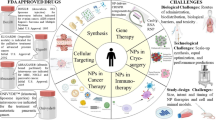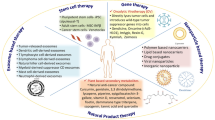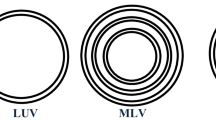Abstract
Objective
In this study, transfection efficiency of human papillomavirus (HPV) E7 DNA and protein constructs into HEK-293T normal cell line, and A549 and TC-1 tumor cell lines was evaluated by four delivery systems including supercharge GFP, hPP10 cell penetrating peptide, TurboFect and Lipofectamine using fluorescence microscopy and flow cytometry.
Results
The results indicated that Lipofectamine 2000 and TurboFect produced more effective transfection for GFP and E7-GFP DNA constructs in HEK-293T cells compared to in A549 and TC-1 cells (p < 0.05). In contrast, the supercharge GFP was efficient for E7 DNA and E7 protein delivery in both normal cell (~ 83.94 and ~ 77.01% for HEK-293T), and cancer cells (~ 71.69 and ~ 67.19% for TC-1, and ~ 73.86 and ~ 67.49% for A549), respectively. Indeed, in these cell lines, transfection efficiency by +36 GFP reached ~ 60–80%. Moreover, the hPP10 produced the best transfection result for E7-GFP protein in HEK-293T cells (~ 63.66%) compared to TurboFect (~ 32.95%); however, the efficiency level of hPP10 was only ~ 17.51 and ~ 16.36% in TC-1 and A549 cells.
Conclusions
Our data suggested that the supercharge GFP is the most suitable transfection vehicle for DNA and protein delivery into TC-1 and A549 tumor cell lines compared to other carriers.




Similar content being viewed by others
References
Arukuusk P, Parnaste L, Oskolkov N, Copolovici DM, Margus H, Padari K et al (2013) New generation of efficient peptide-based vectors, NickFects, for the delivery of nucleic acids. Biochem Biophys Acta 1828:1365–1373. https://doi.org/10.1016/j.bbamem.2013.01.011
Bolhassani A, Zahedifard F, Taghikhani M, Rafati S (2008) Enhanced immunogenicity of HPV16 E7 accompanied by Gp96 as an adjuvant in two vaccination strategies. Vaccine 26(26):3362–3370. https://doi.org/10.1016/j.vaccine.2008.03.082
Bolhassani A, Zahedifard F, Taslimi Y, Taghikhani M, Nahavandian B, Rafati S (2009) Antibody detection against HPV16E7 and Gp96 fragments as biomarkers in cervical cancer patients. Indian J Med Res 130:533–541
Chugh A, Eudes F, Shim YS (2010) Cell-penetrating peptides: nanocarrier for macromolecule delivery in living cells. IUBMB Life 62(3):183–193. https://doi.org/10.1002/iub.297
Cronican JJ, Thompson DB, Beier KT, McNaughton BR, Cepko CL, Liu DR (2010) Potent delivery of functional proteins into mammalian cells in vitro and in vivo using a supercharged protein. ACS Chem Biol 5:747–752. https://doi.org/10.1021/cb1001153
Giard DJ, Aaronson SA, Todaro GJ, Arnstein P, Kersey JH, Dosik H, Parks WP (1973) In vitro cultivation of human tumors: establishment of cell lines derived from a series of solid tumors. J Natl Cancer Inst 51(5):1417–1423
Horibe T, Torisawa A, Akiyoshi R, Hatta-Ohashi Y, Suzukib H, Kawakamia K (2014) Transfection efficiency of normal and cancer cell lines and monitoring of promoter activity by single-cell bioluminescence imaging. Luminescence 29:96–100. https://doi.org/10.1002/bio.2508
Huang YW, Lee HJ, Tolliver LM, Aronstam RS (2015) Delivery of nucleic acids and nanomaterials by cell-penetrating peptides: opportunities and challenges. Biomed Res Int 2015:1–16. https://doi.org/10.1155/2015/834079
Kadkhodayan S, Sadat SM, Irani S, Fotouhi F, Bolhassani A (2016) Generation of GFP native protein for detection of its intracellular uptake by cell-penetrating peptides. Folia Biol 62:103–109
Kim TK, Eberwine JH (2010) Mammalian cell transfection: the present and the future. Anal Bioanal Chem 397:3173–3178. https://doi.org/10.1007/s00216-010-3821-6
Kong Y, Zhang X, Zhao Y, Xue Y, Zhang Y (2017) Uptake of DNA by cancer cells without a transfection reagent. Biol Res 50:2. https://doi.org/10.1186/s40659-017-0107-x
Margie L (2015) The discovery and characterization of endosomal escape enhancing compounds to improve protein delivery efficacy. Doctoral dissertation, Harvard University, Graduate School of Arts & Sciences pp 1–115
McNaughton BR, Cronican JJ, Thompson DB, Liu DR (2009) Mammalian cell penetration, siRNA transfection, and DNA transfection by supercharged proteins. PNAS 106:6111–6116. https://doi.org/10.1073/pnas.0807883106
Motevalli F, Bolhassani A, Hesami S, Shahbazi S (2017) Supercharged green fluorescent protein delivers HPV16 E7 DNA and protein into mammalian cells in vitro and in vivo. Immunol Lett 194:29–39. https://doi.org/10.1016/j.imlet.2017.12.005
Nikcevic G, Kovacevic-Grujicic N, Stevanovic M (2003) Improved transfection efficiency of cultured human cells. Cell Biol Int 27(9):735–737
Pipes BL, Vasanwala FH, Tsang TC, Zhang T, Luo P, Harris DT (2005) Brief heat shock increases stable integration of lipid-mediated DNA transfections. Biotechniques 38:48–52
Shahbazi S, Bolhassani A, Arashkia A, Sadroddiny E (2018) Generation of the fluorescent HPV16 E7 protein for detection of delivery in vitro. Protein Pept Lett. https://doi.org/10.2174/0929866525666180115123620 (in press)
Thompson DB, Cronican JJ, Liu DR (2012) Engineering and identifying supercharged proteins for macromolecule delivery into mammalian cells. Methods Enzymol 503:293–319. https://doi.org/10.1016/B978-0-12-396962-0.00012-4
Tong H, Liu H, Wang Y, Yang F, Shi Q, Fernandes JC et al (2014) A novel in vitro system for intracellular delivery of non-viral DNA. J Orthop Transl 2:157–164
Wang H, Ma JL, Yang YG, Song Y, Wu J, Qin YY et al (2016) Efficient therapeutic delivery by a novel cell-permeant peptide derived from KDM4A protein for anti-tumor and anti-fibrosis. Oncotarget 7(31):1–16
Wu Q, Cheng Q, Yuan S, Qian J, Zhong K, Qian Y, Liu Y (2015) A cell-penetrating protein designed for bimodal fluorescence and magnetic resonance imaging. Chem Sci 6:6607–6613. https://doi.org/10.1039/c5sc01925g
Acknowledgements
Financial support of this work was provided by Virology Research Center, Shahid Beheshti University of Medical Sciences, and Pasteur Institute of Iran.
Author information
Authors and Affiliations
Corresponding authors
Ethics declarations
Conflict of interest
The authors declare that they have no competing interests.
Supplementary data
Physiochemical characterization and stability analysis of the +36GFP/DNA nanoparticles: A) Representative gel retardation assay of +36 GFP complexed with pcDNA-E7 at different N/P ratios (GFP: E7DNA); Lane 1: naked plasmid DNA as a control (pcDNA-E7), Lane 2: N/P = 1:1, Lane 3: N/P = 2:1, Lane 4: N/P = 5:1, Lane 5: N/P = 10:1, and Lane 6: N/P = 20:1. The DNA complexed with GFP that was not able to migrate into the gels was observed at an N/P ratio of 5:1; B) Stability analysis of GFP-based nanoparticles against DNase I; Lane 1: naked plasmid DNA with DNase, Lane 2: naked plasmid DNA without DNase, and Lane 3: N/P = 10:1.
Electronic supplementary material
Rights and permissions
About this article
Cite this article
Shahbazi, S., Haghighipour, N., Soleymani, S. et al. Delivery of molecular cargoes in normal and cancer cell lines using non-viral delivery systems. Biotechnol Lett 40, 923–931 (2018). https://doi.org/10.1007/s10529-018-2551-2
Received:
Accepted:
Published:
Issue Date:
DOI: https://doi.org/10.1007/s10529-018-2551-2





